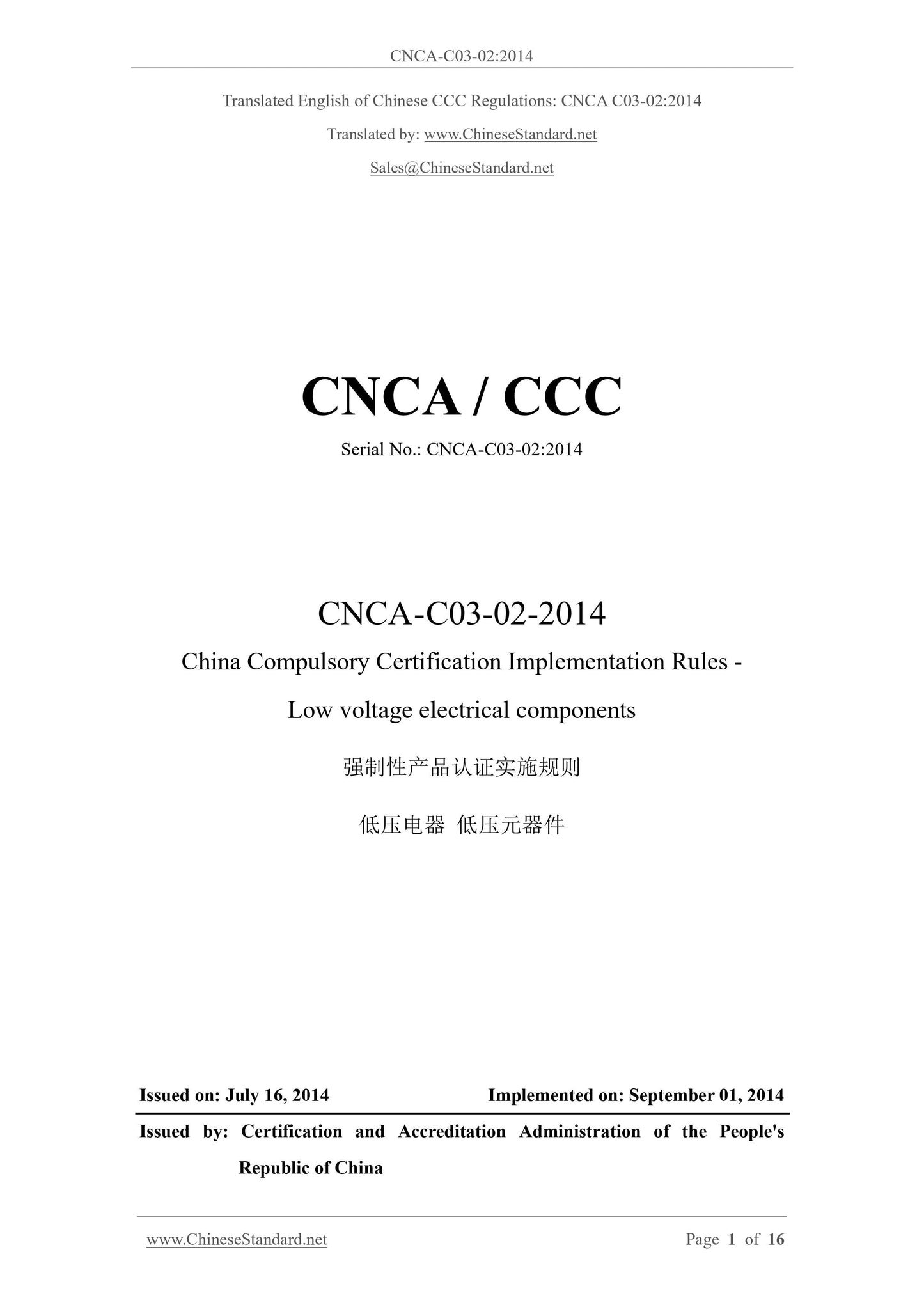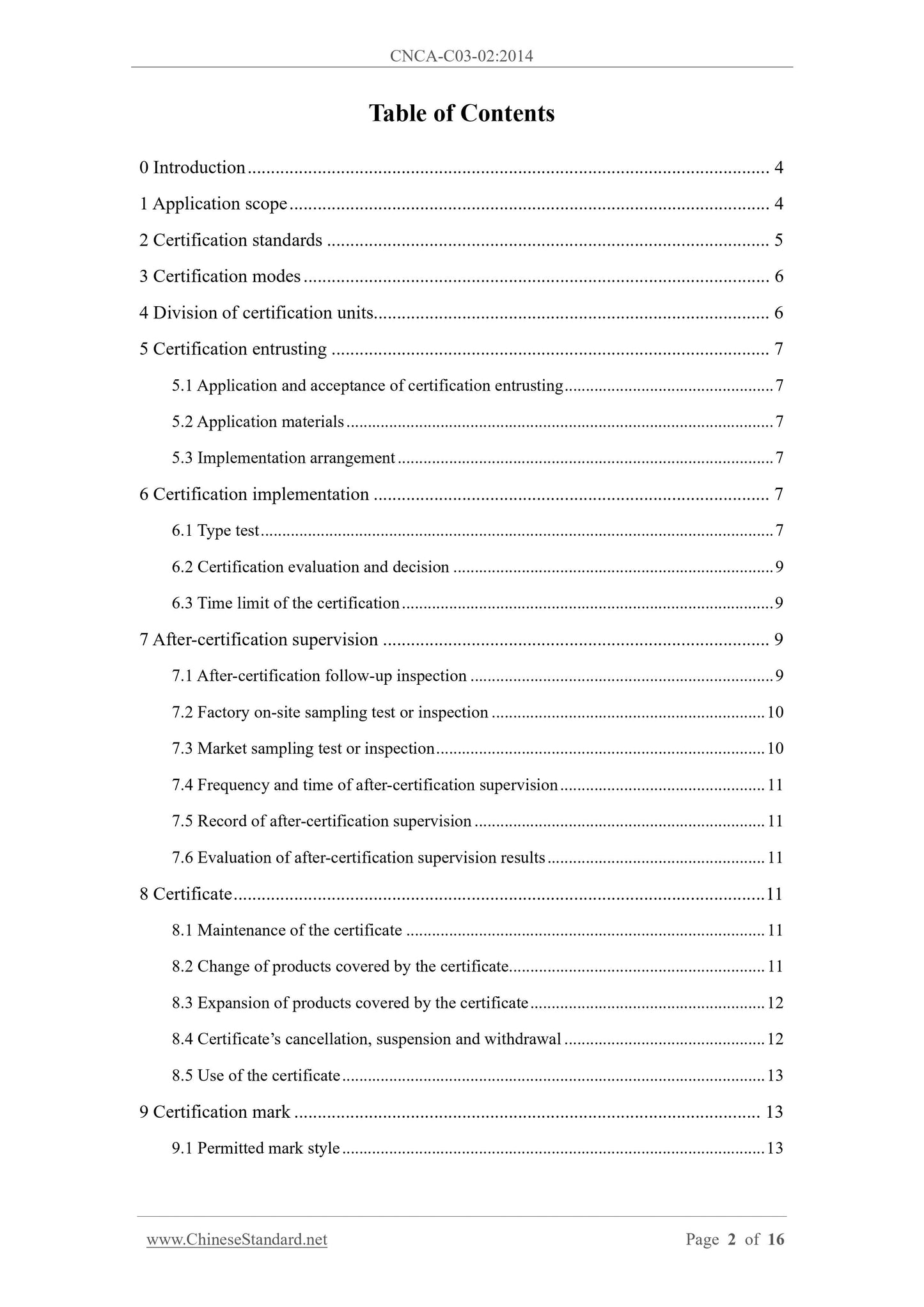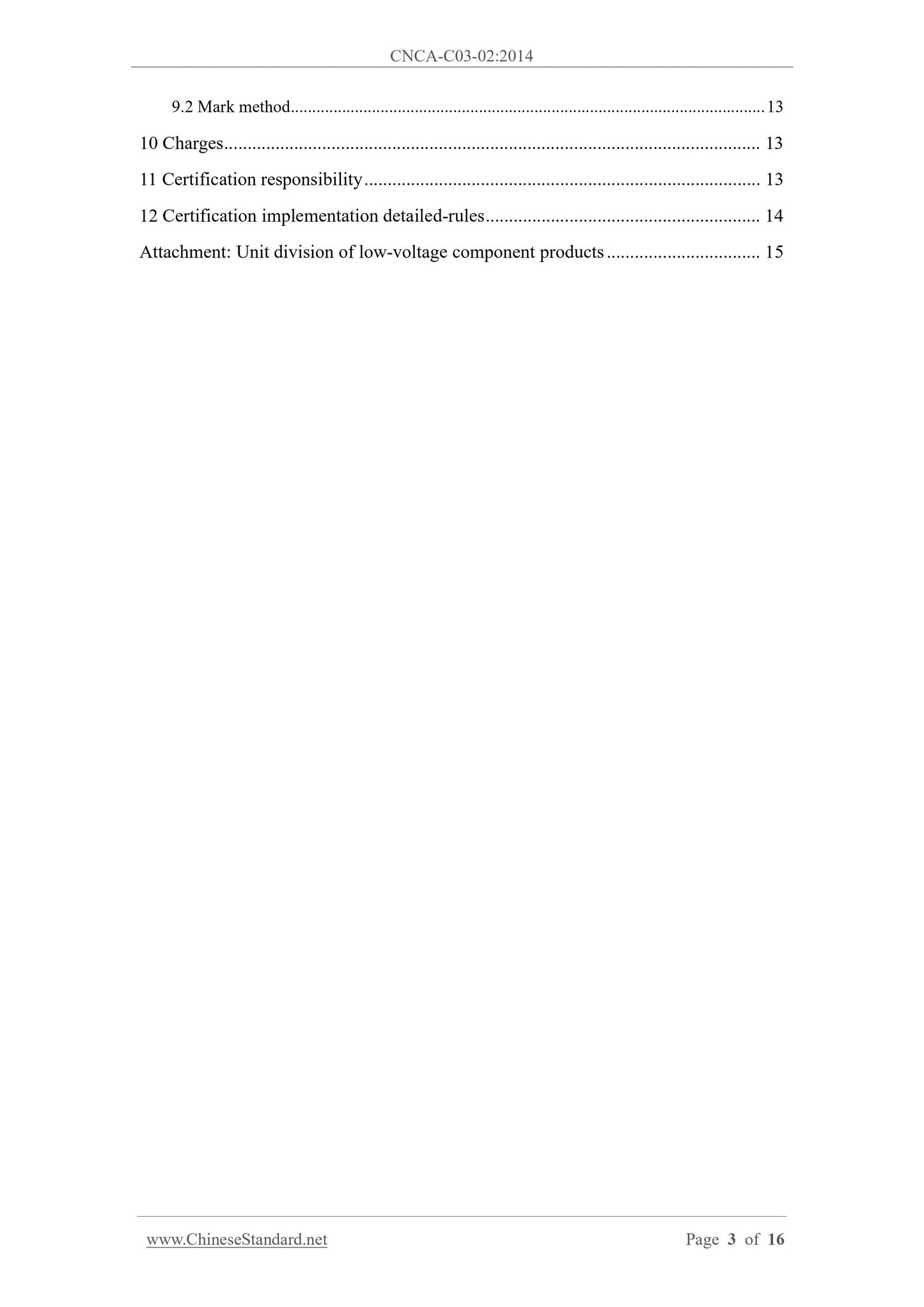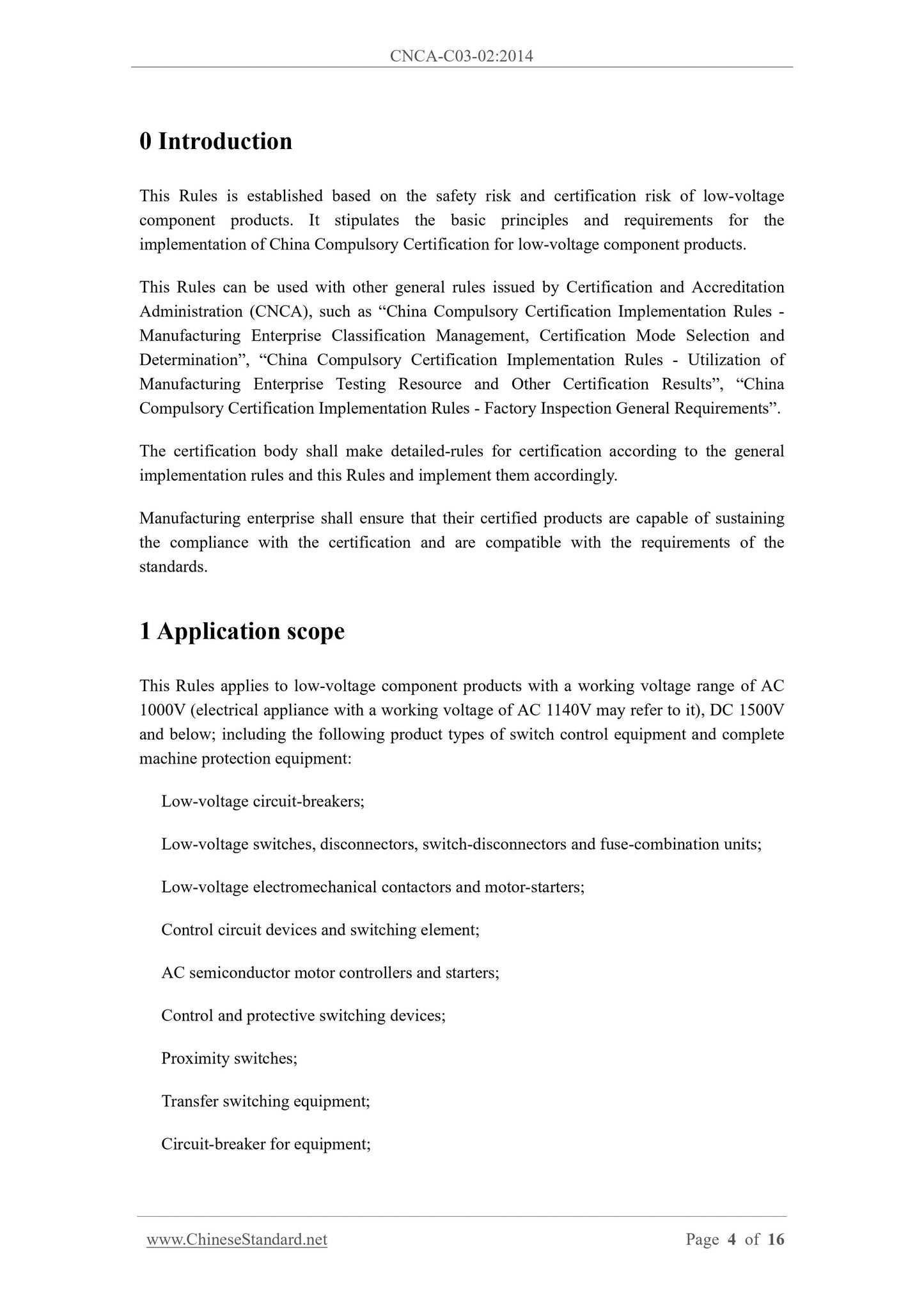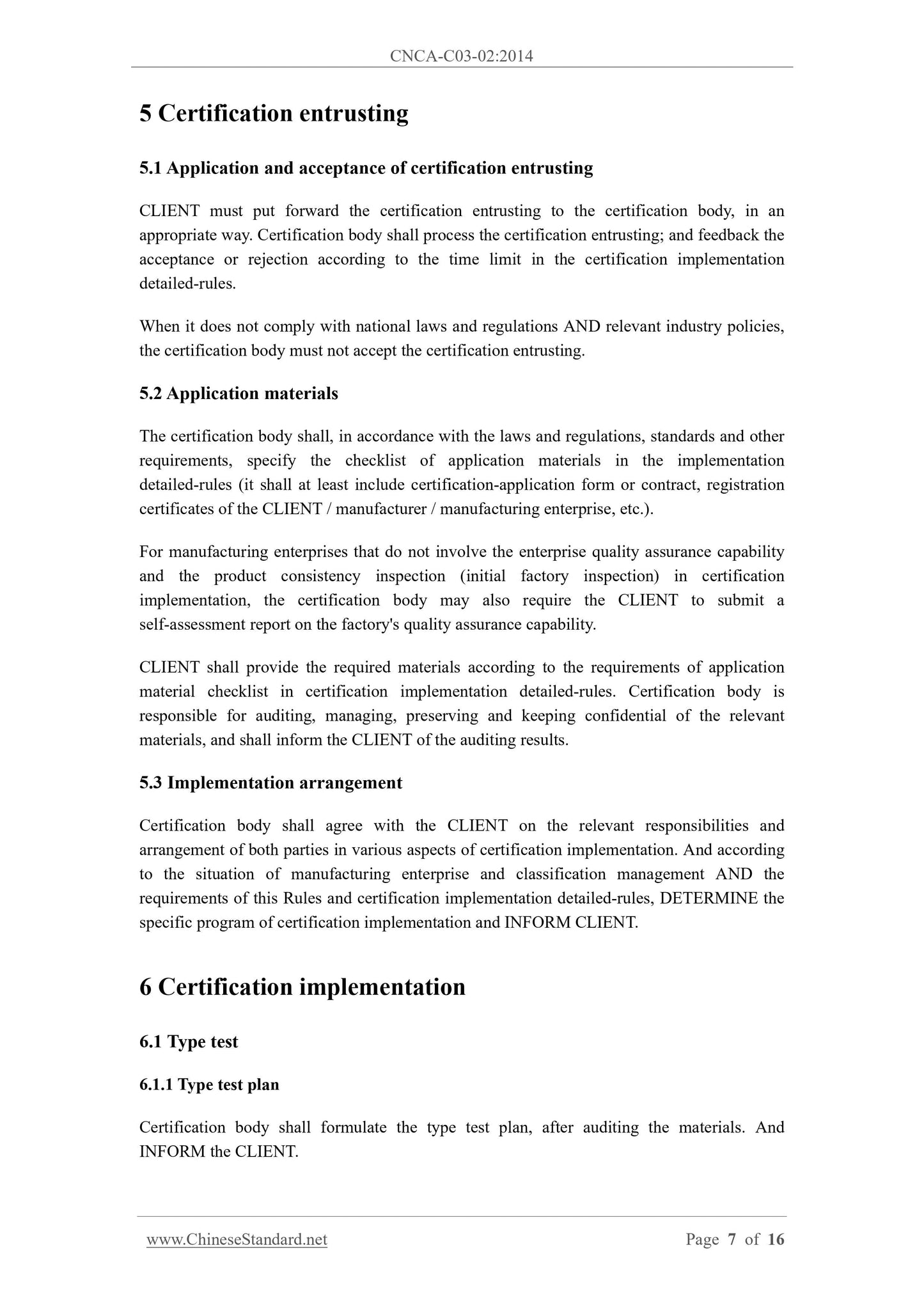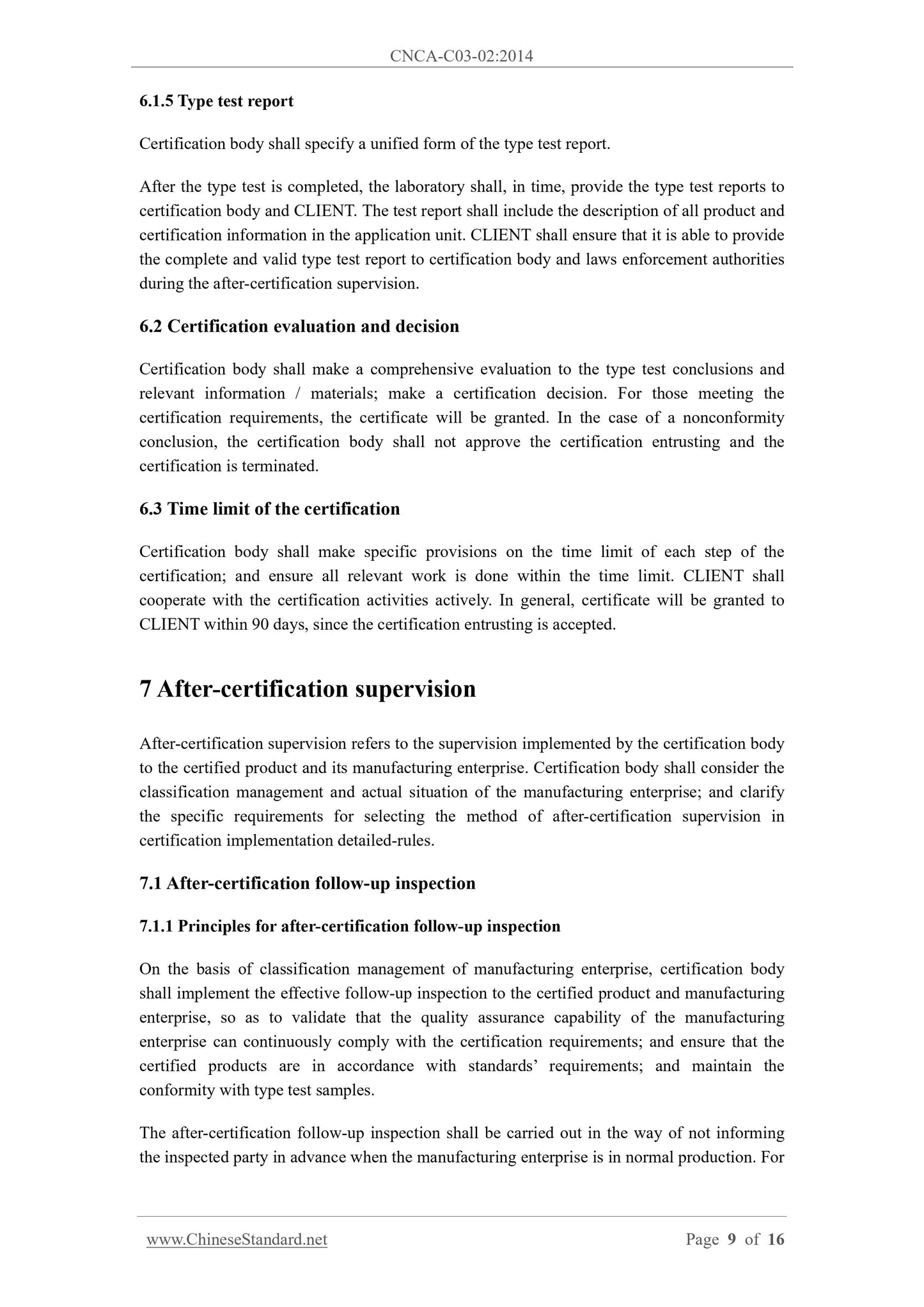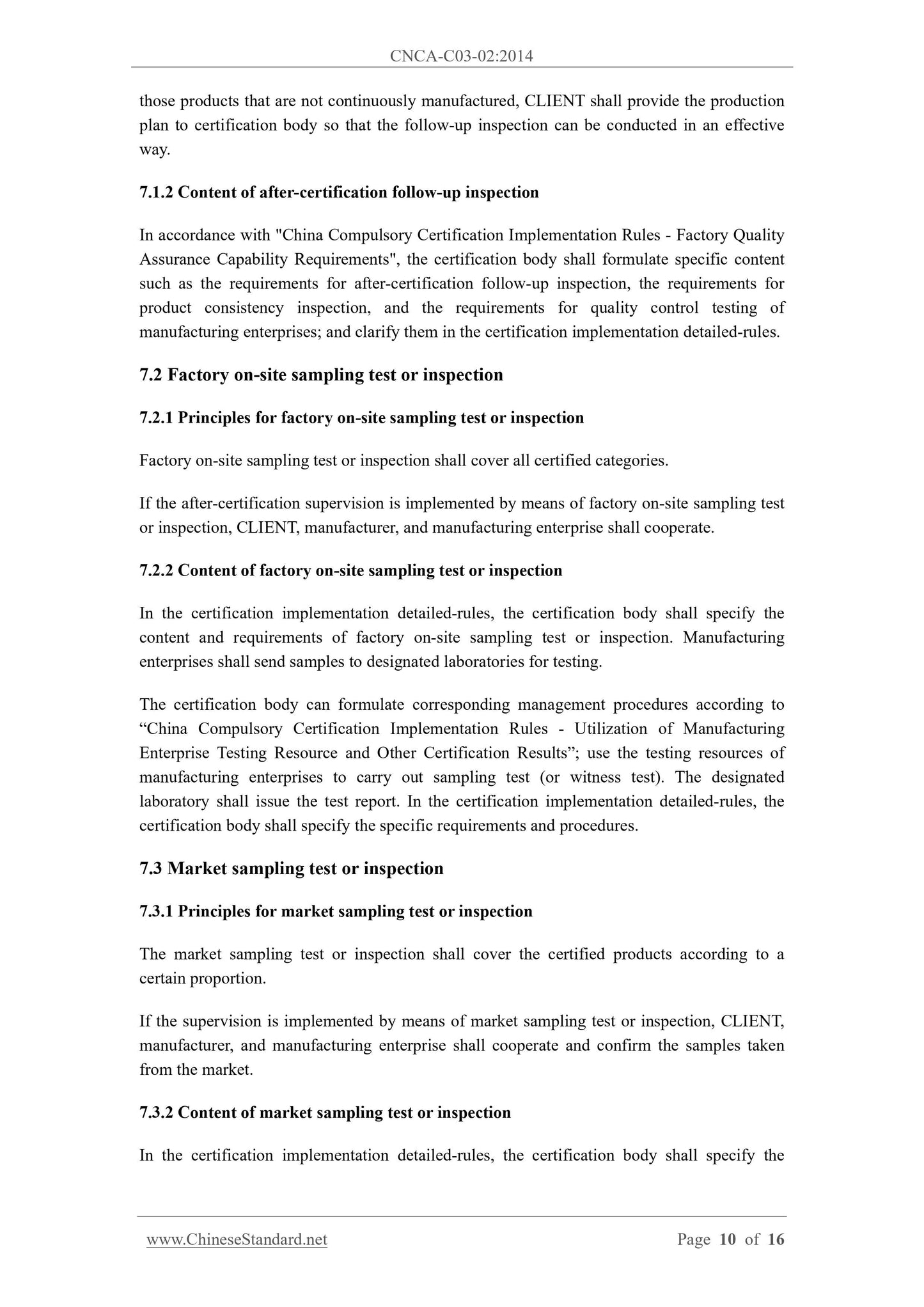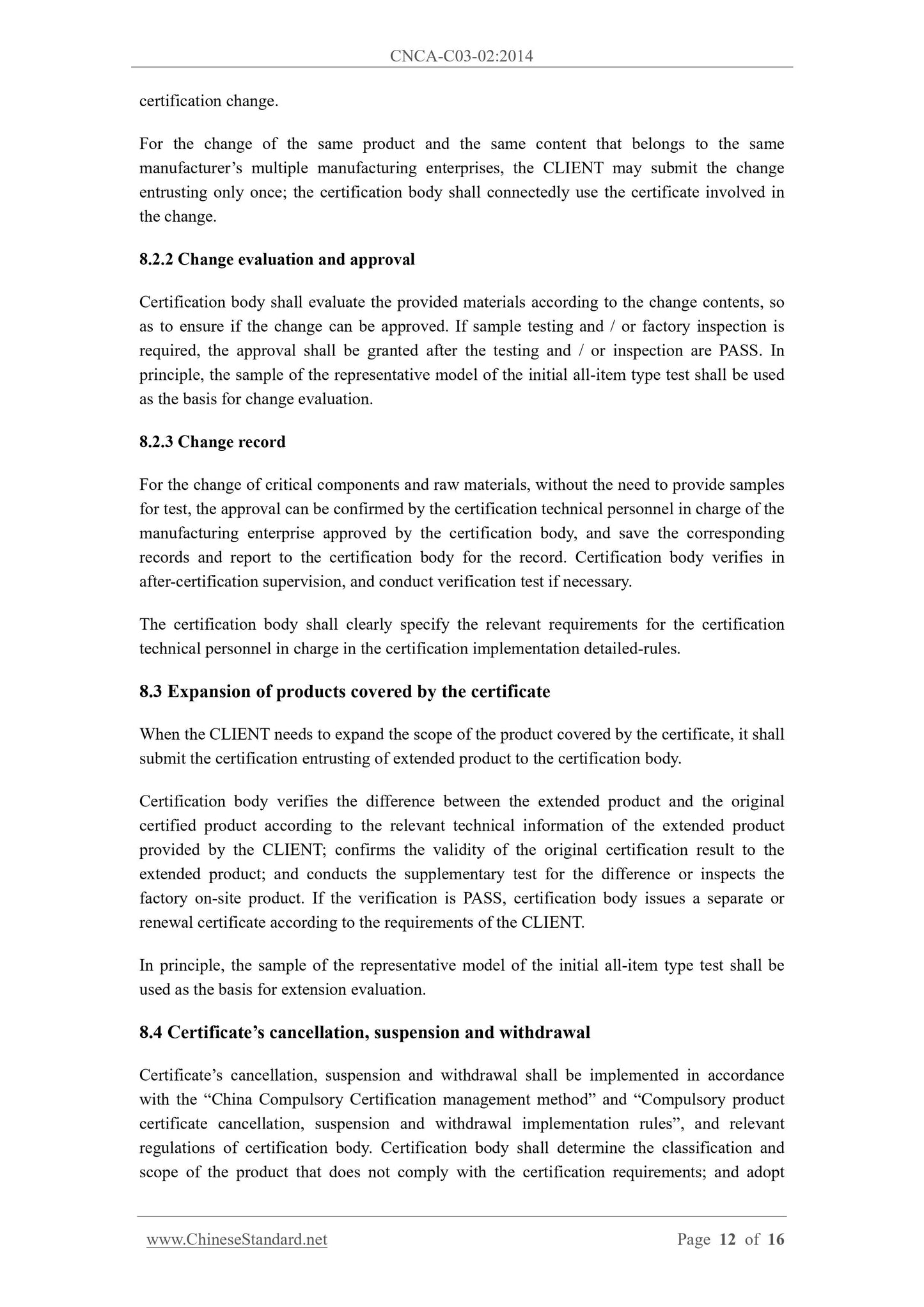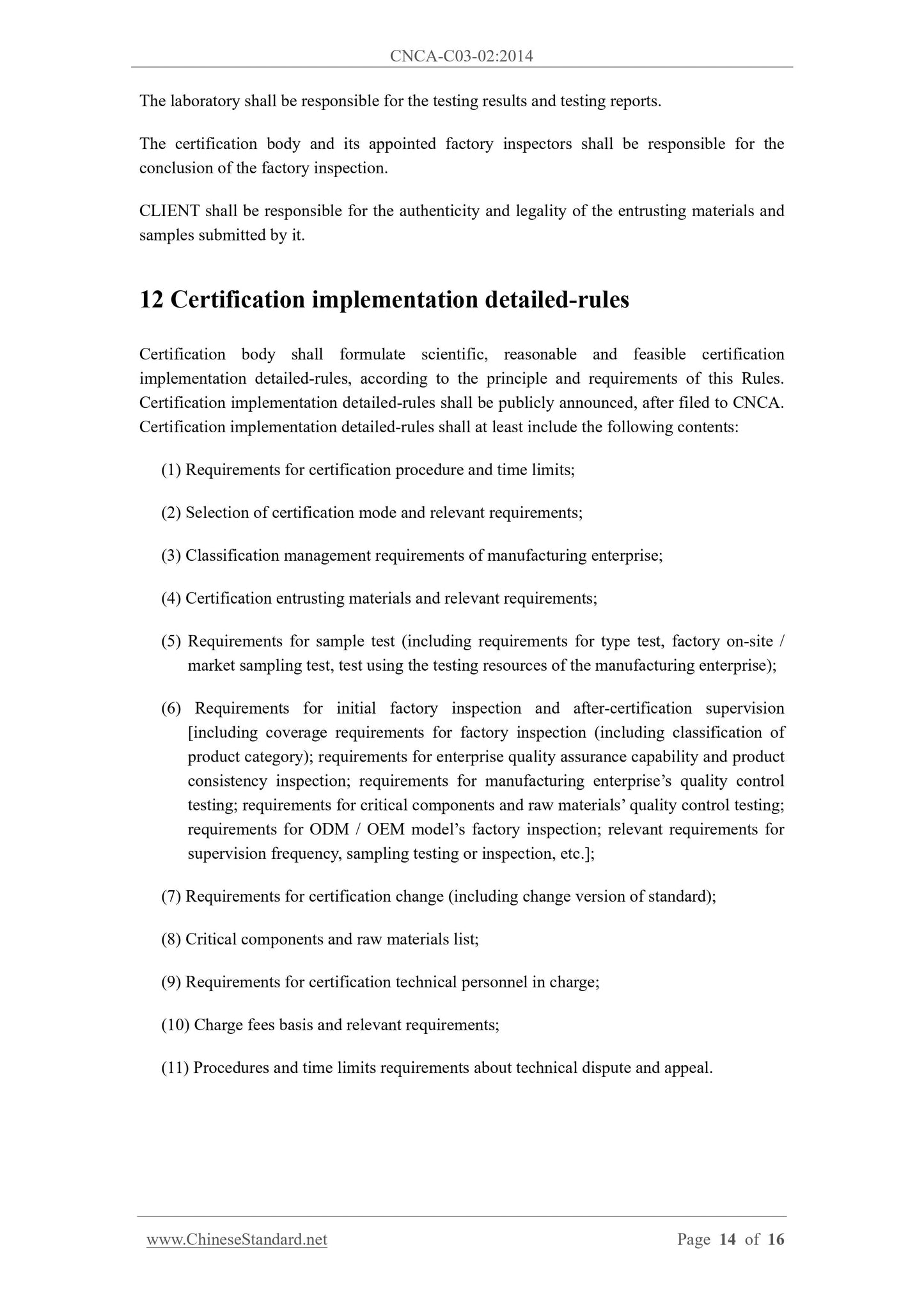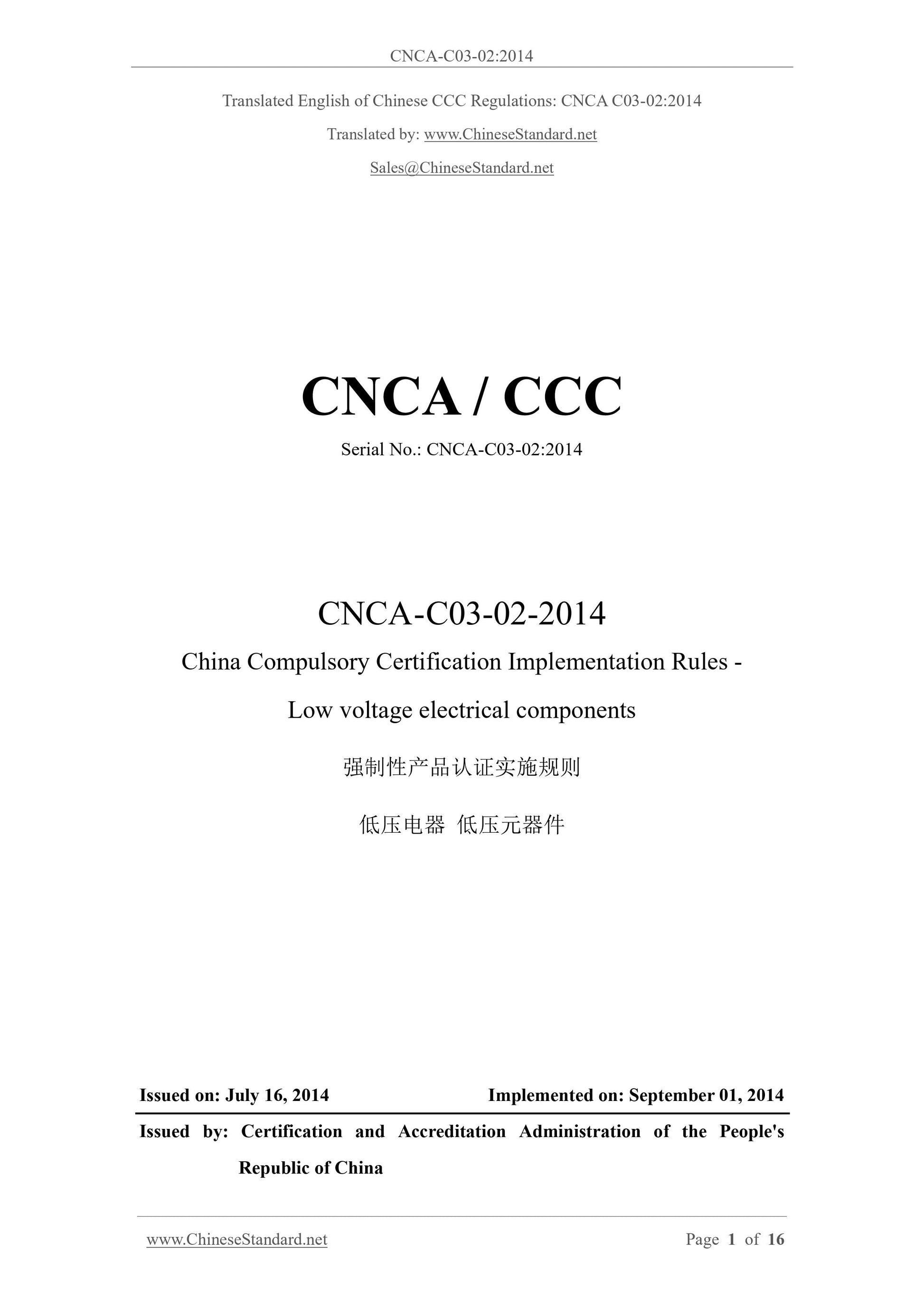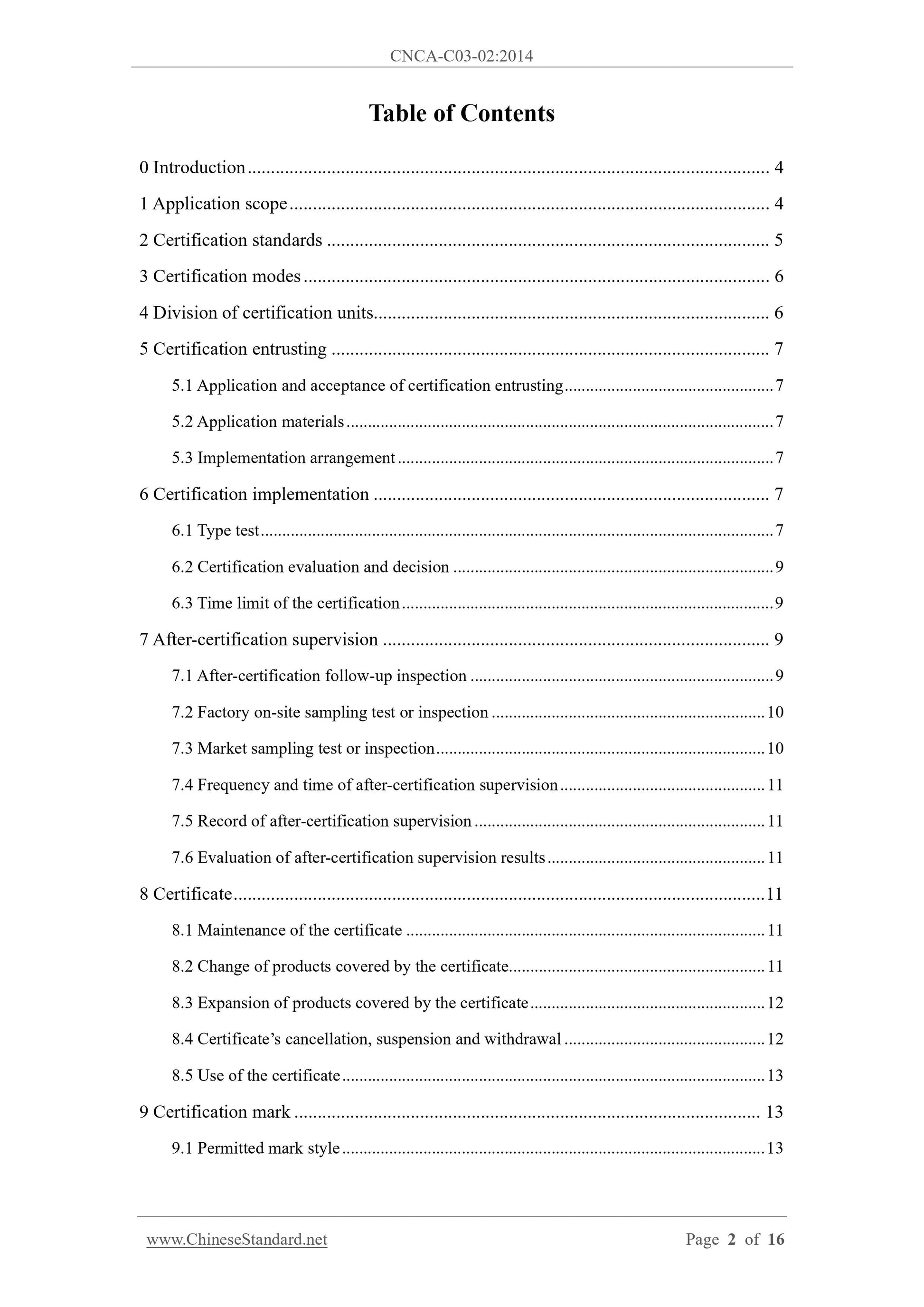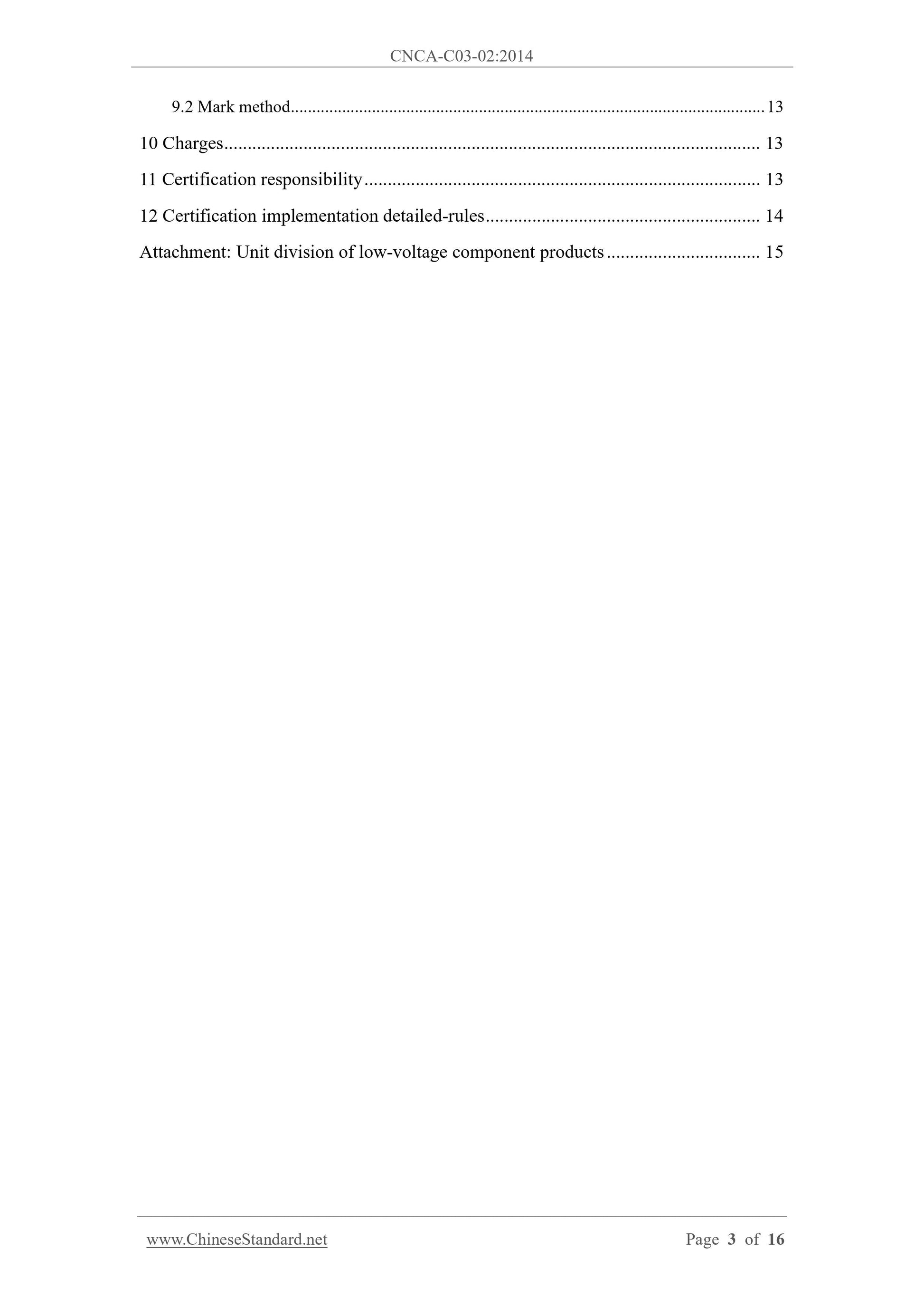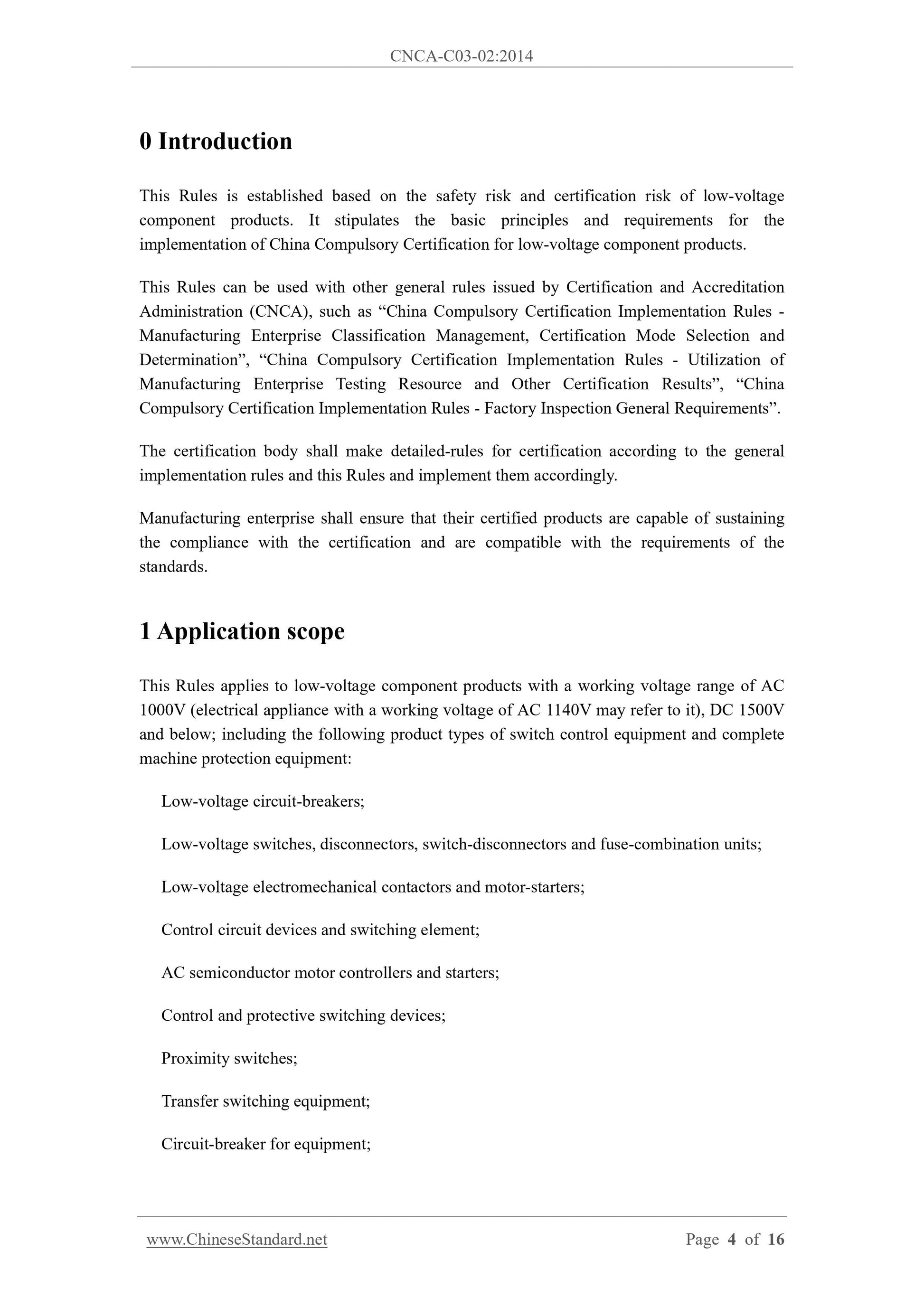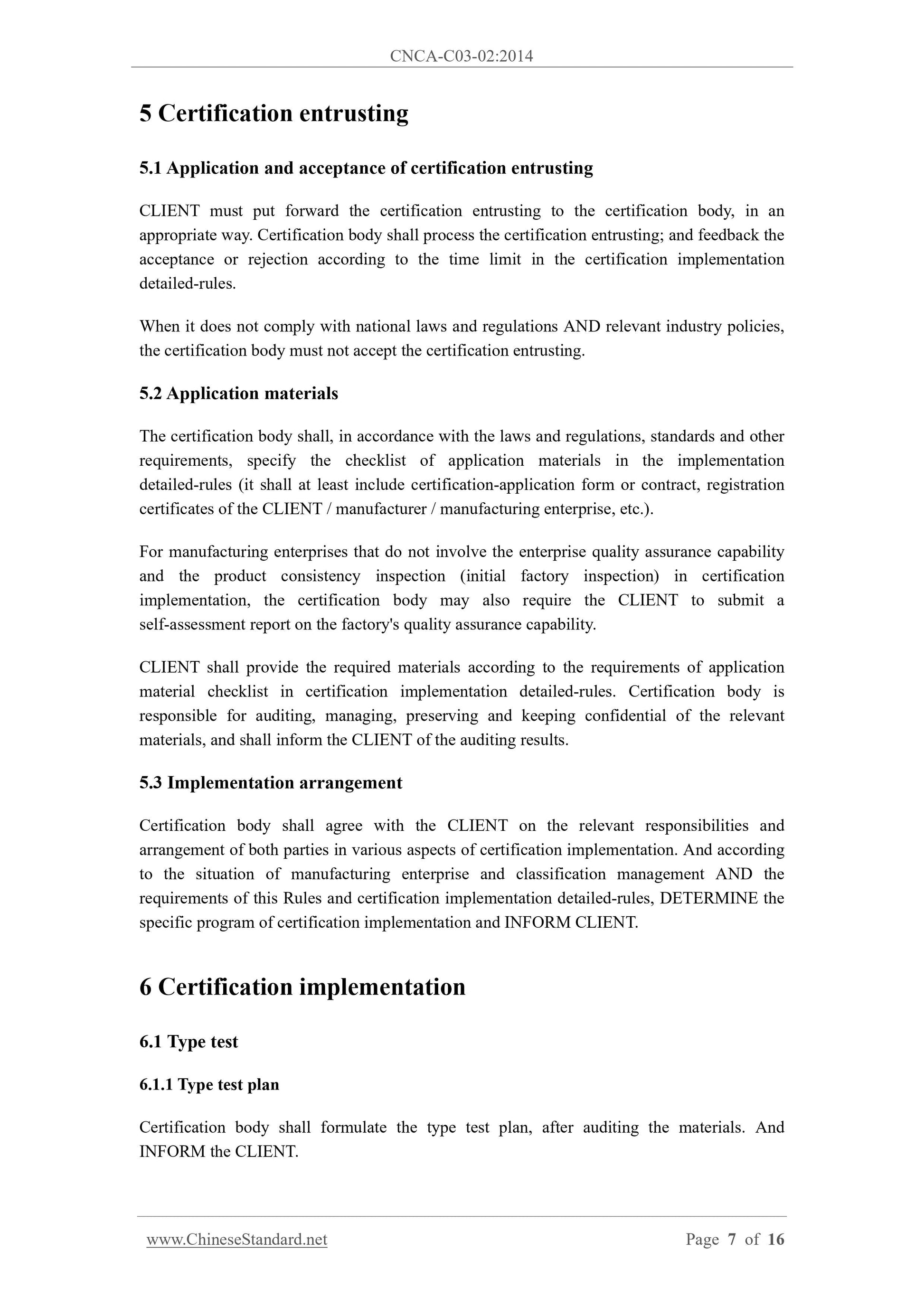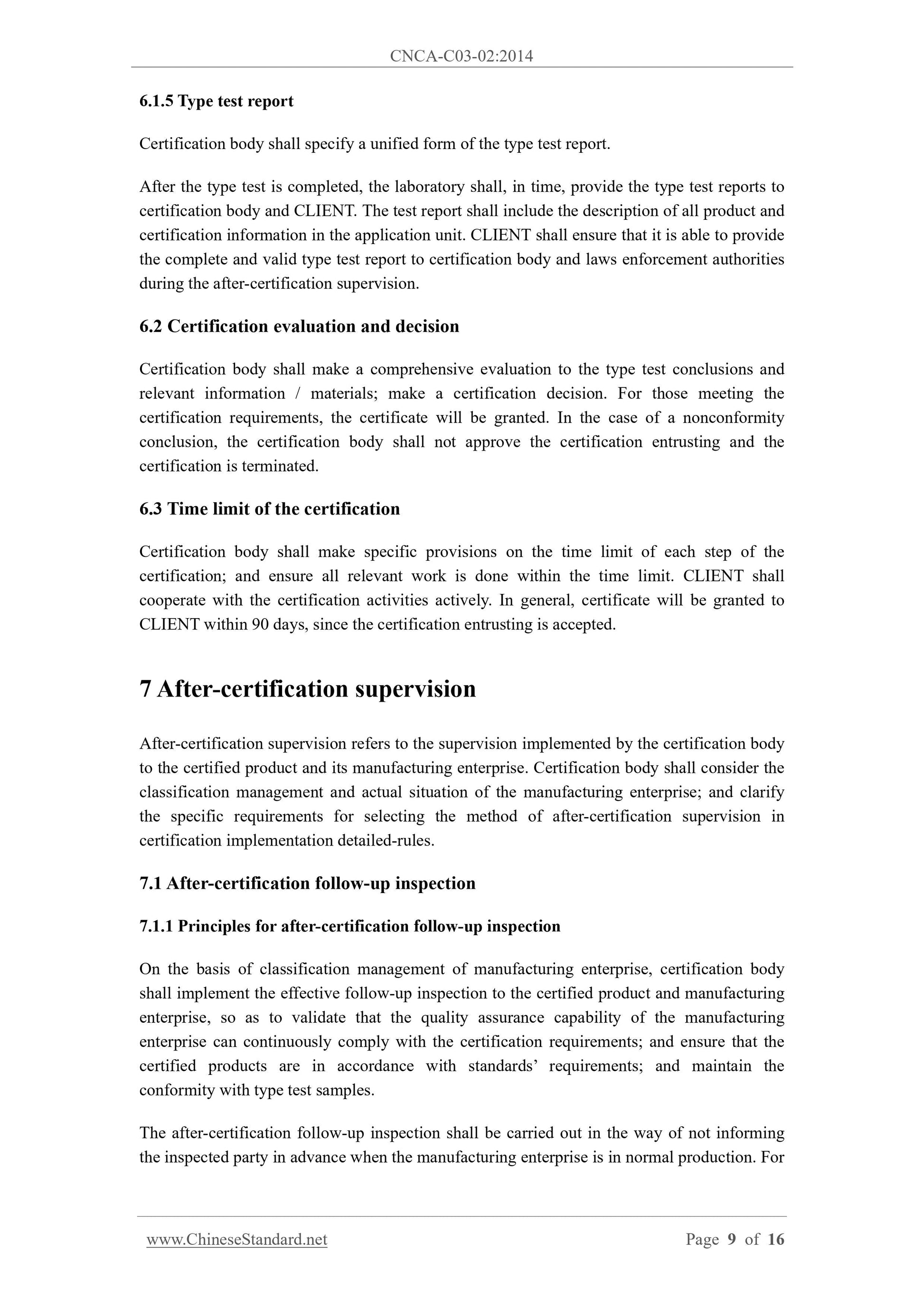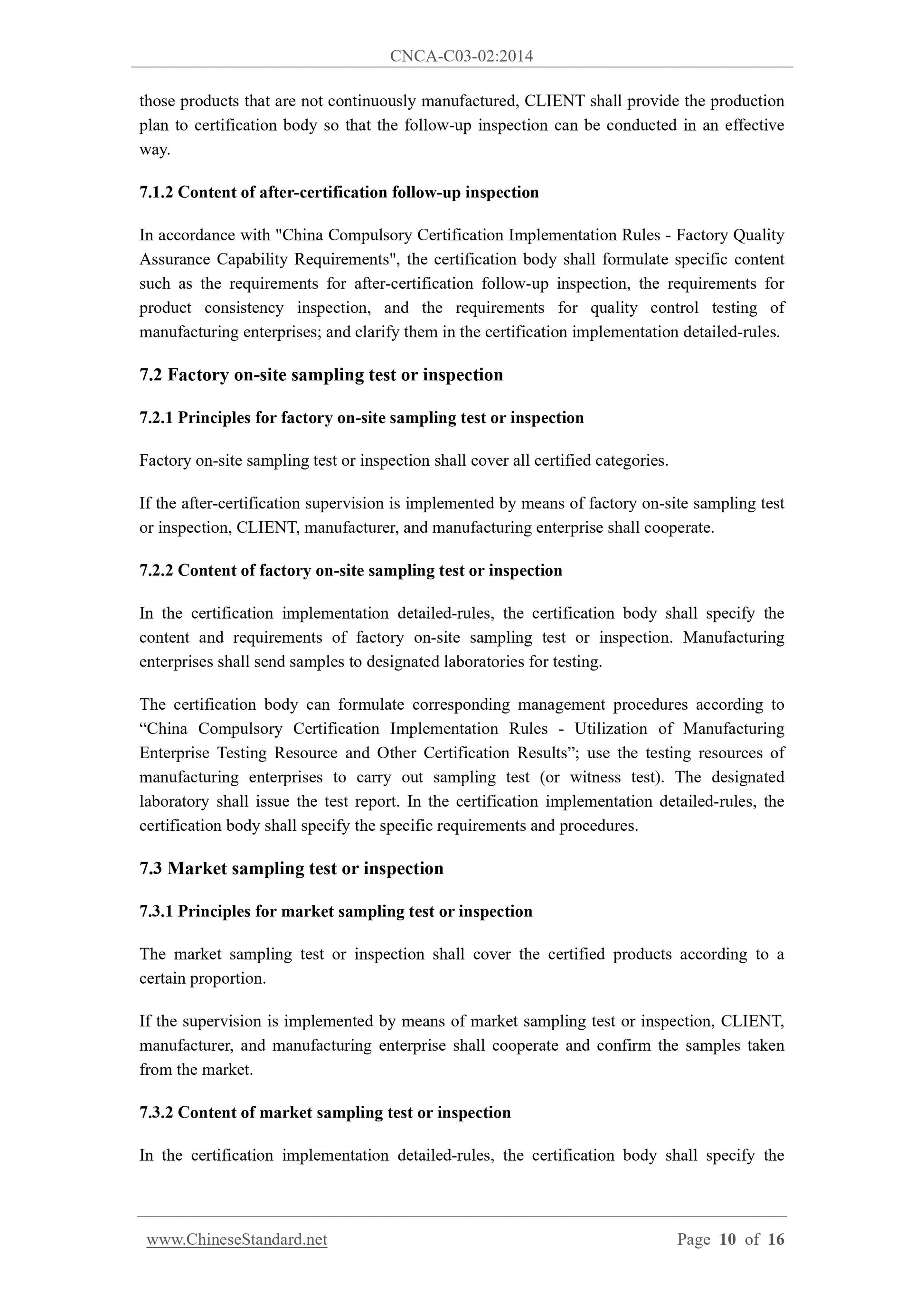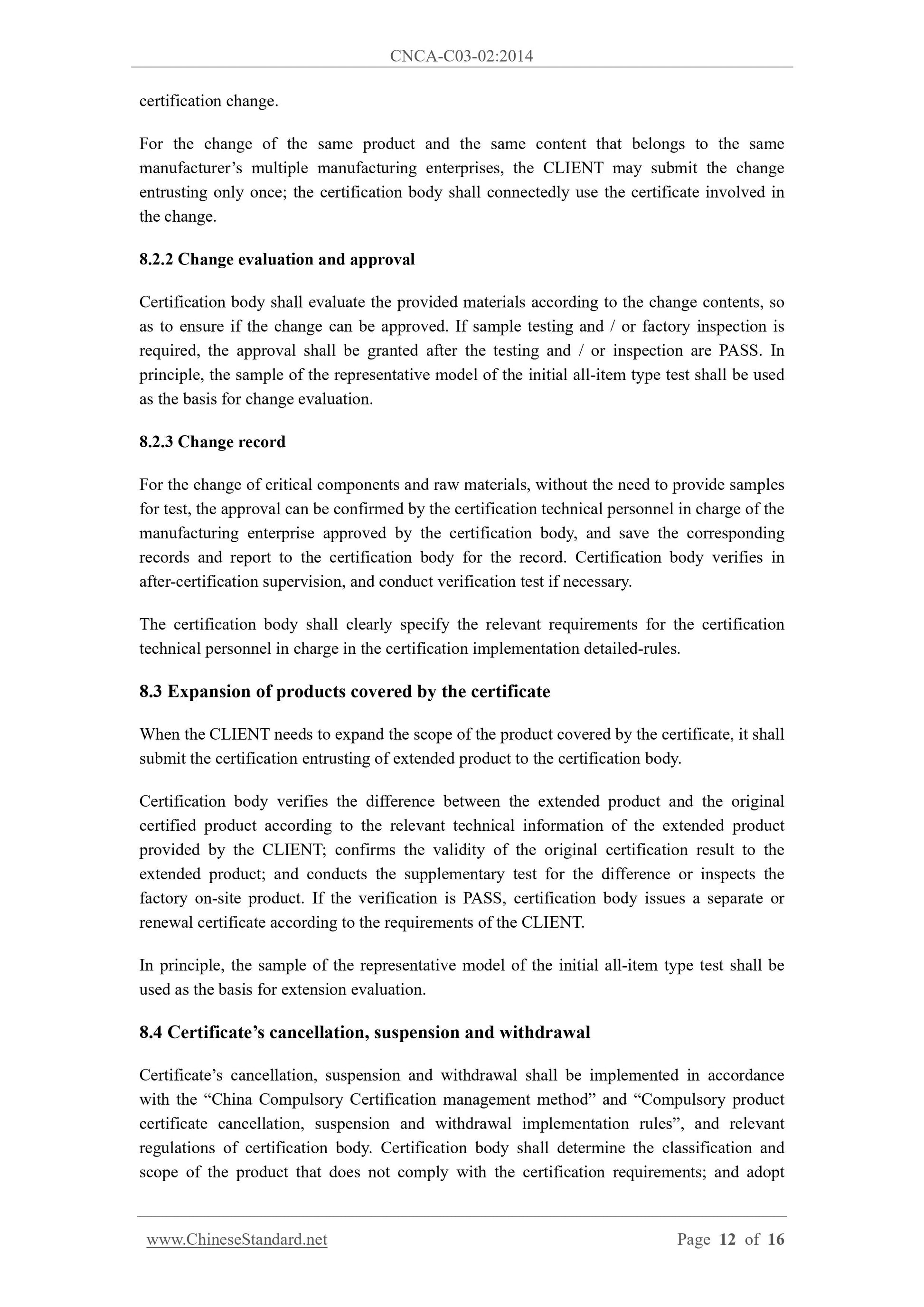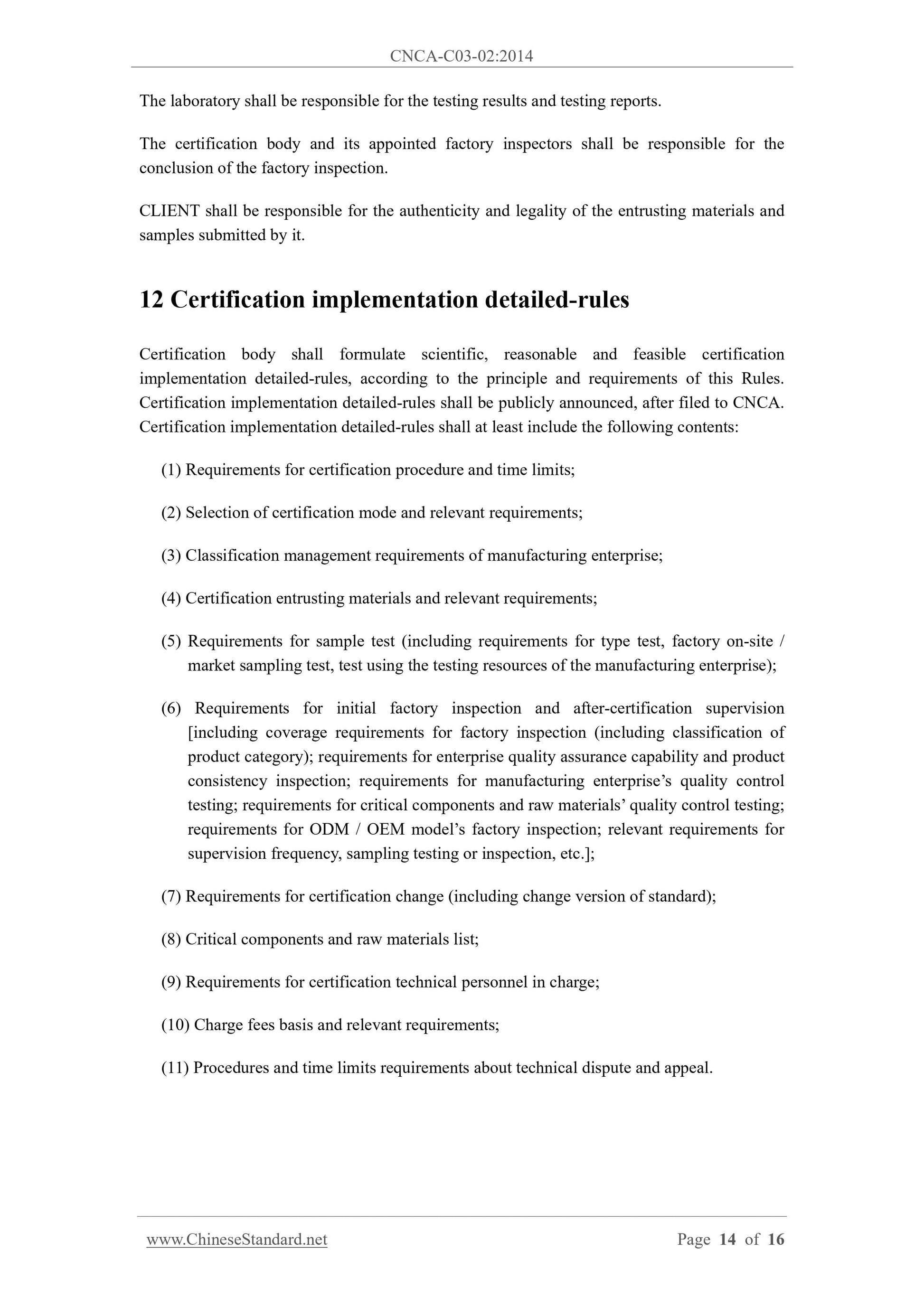1
/
of
9
PayPal, credit cards. Download editable-PDF and invoice in 1 second!
CNCA C03-02-2014 English PDF
CNCA C03-02-2014 English PDF
Regular price
$360.00
Regular price
Sale price
$360.00
Unit price
/
per
Shipping calculated at checkout.
Couldn't load pickup availability
CNCA C03-02-2014: China Compulsory Certification Implementation Rules - Low voltage electrical components
Delivery: 9 seconds. Download (and Email) true-PDF + Invoice.Get Quotation: Click CNCA C03-02-2014 (Self-service in 1-minute)
Newer / historical versions: CNCA C03-02-2014
Preview True-PDF
Scope
This Rules applies to low-voltage component products with a working voltage range of AC1000V (electrical appliance with a working voltage of AC 1140V may refer to it), DC 1500V
and below; including the following product types of switch control equipment and complete
machine protection equipment:
Low-voltage circuit-breakers;
Low-voltage switches, disconnectors, switch-disconnectors and fuse-combination units;
Low-voltage electromechanical contactors and motor-starters;
Control circuit devices and switching element;
AC semiconductor motor controllers and starters;
Control and protective switching devices;
Proximity switches;
Transfer switching equipment;
Circuit-breaker for equipment;
Basic Data
| Standard ID | CNCA C03-02-2014 (CNCA-C03-02-2014) |
| Description (Translated English) | China Compulsory Certification Implementation Rules - Low voltage electrical components |
| Sector / Industry | China Compulsory Certification (CCC) Implementation Rules |
| Classification of Chinese Standard | K31 |
| Classification of International Standard | CNCA Announcement No. 23 of 2014; CNCA Announcement No. 23 of 2014 |
| Word Count Estimation | 16,139 |
| Date of Issue | 7/16/2014 |
| Date of Implementation | 9/1/2014 |
| Older Standard (superseded by this standard) | CNCA 01C-011-2007; CNCA 01C-012-2007 |
| Quoted Standard | GB 14048.2; GB 14048.3; GB 14048.4; GB 14048.5; GB 14048.6; GB 14048.9; GB/T 14048.10; GB/T 14048.11; GB 17701; GB 17885; GB 10963.1; GB 10963.2; GB 24350; GB 16916.1; GB 16916.21; GB 16916.22; GB 22794; GB 20044; GB 28527; GB/T 22387; GB 13539.1; GB/T 13 |
| Regulation (derived from) | CNCA Announcement No. 23 of 2014; CNCA Announcement No. 23 of 2014 |
| Issuing agency(ies) | China National Accreditation Administration for Certification and Accreditation |
| Summary | This standard specifies the China Compulsory Certification (CCC) implementation rules for Low voltage electrical components. This standard defines the Low voltage electrical components's certification unit; certification entrusting; document requirements; |
Share
